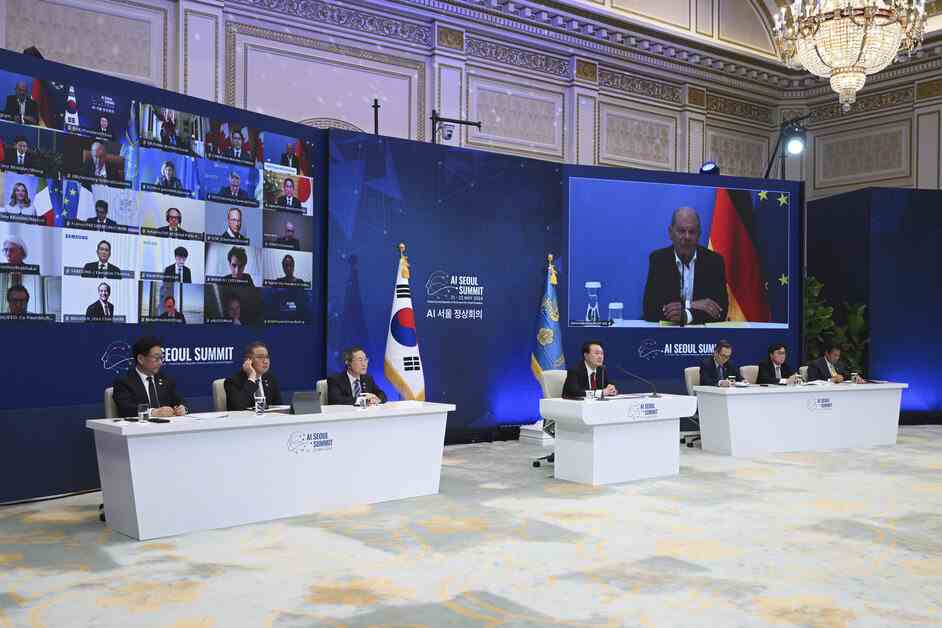Global AI Summit in Seoul: International Experts Discuss Risks and Regulations
At the recent AI Summit in Seoul, international experts gathered to discuss the risks and regulations surrounding artificial intelligence (AI) development. The summit saw the presentation of an interim status report on the assessment of AI risks, highlighting the uncertainties surrounding AI development in the near future.
The report, compiled by 75 experts, emphasized the challenges in regulating AI and assessing potential risks. Efforts to regulate AI on an international level are gaining momentum, with more than two dozen countries agreeing to develop common risk limits for AI development and usage. Signatories of the declaration included countries like Germany and the European Union.
One of the key points of discussion at the summit was the disagreement among experts regarding the future developments and risks associated with AI. While known dangers such as Deep Fake News and mass unemployment were identified, there was a lack of consensus on the likelihood and timing of these risks becoming acute. Experts highlighted the uncertain future of general-purpose AI, with a wide range of possible outcomes, both positive and negative.
The summit also addressed the need for further research into the technical and social risks of AI. Ten countries and the EU have decided to establish an international network of AI security institutes to coordinate research efforts and establish common standards. Additionally, 16 companies committed to publishing standards for evaluating their AI models, with a focus on preventing misuse of the technology by malicious actors.
The discussions at the AI Summit in Seoul underscored the importance of ongoing research and collaboration in addressing the risks and challenges posed by AI development. With the future of AI remaining uncertain, international cooperation and regulatory efforts are crucial in ensuring the safe and responsible advancement of artificial intelligence technology.
